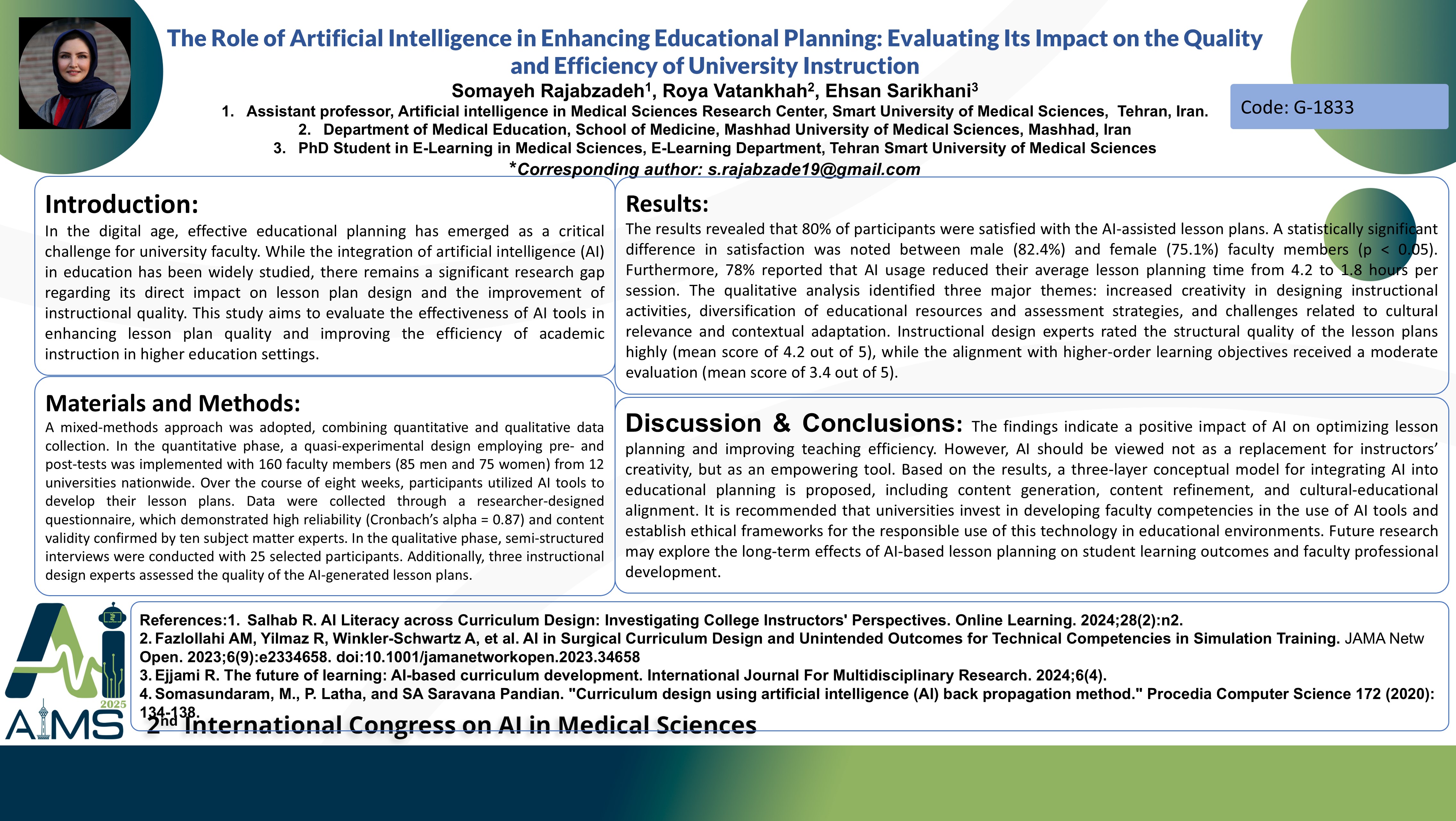نقش هوش مصنوعی در بهبود برنامه ریزی آموزشی: تحلیل تاثیرات بر کیفیت و کارایی تدریس دانشگاهی
کد: G-1833
نویسندگان: Dr. Somayeh Rajabzade *, Roya Vatankhah, Ehsan Sarikhani ℗
زمان بندی: زمان بندی نشده!
برچسب: سیاست گذاری، قانون گذاری و مدیریت سلامت در حوزه هوش مصنوعی
دانلود: دانلود پوستر
خلاصه مقاله:
خلاصه مقاله
Background: In the digital age, effective educational planning has emerged as a critical challenge for university faculty. While the integration of artificial intelligence (AI) in education has been widely studied, there remains a significant research gap regarding its direct impact on lesson plan design and the improvement of instructional quality. This study aims to evaluate the effectiveness of AI tools in enhancing lesson plan quality and improving the efficiency of academic instruction in higher education settings. Methodology: A mixed-methods approach was adopted, combining quantitative and qualitative data collection. In the quantitative phase, a quasi-experimental design employing pre- and post-tests was implemented with 160 faculty members (85 men and 75 women) from 12 universities nationwide. Over the course of eight weeks, participants utilized AI tools to develop their lesson plans. Data were collected through a researcher-designed questionnaire, which demonstrated high reliability (Cronbach’s alpha = 0.87) and content validity confirmed by ten subject matter experts. In the qualitative phase, semi-structured interviews were conducted with 25 selected participants. Additionally, three instructional design experts assessed the quality of the AI-generated lesson plans. Findings: The results revealed that 80% of participants were satisfied with the AI-assisted lesson plans. A statistically significant difference in satisfaction was noted between male (82.4%) and female (75.1%) faculty members (p 0.05). Furthermore, 78% reported that AI usage reduced their average lesson planning time from 4.2 to 1.8 hours per session. The qualitative analysis identified three major themes: increased creativity in designing instructional activities, diversification of educational resources and assessment strategies, and challenges related to cultural relevance and contextual adaptation. Instructional design experts rated the structural quality of the lesson plans highly (mean score of 4.2 out of 5), while the alignment with higher-order learning objectives received a moderate evaluation (mean score of 3.4 out of 5). Conclusion: The study highlights the promising role of AI in optimizing lesson planning processes and enhancing instructional effectiveness in higher education. However, AI should be regarded not as a substitute for the educator’s creativity, but as a supportive and enabling tool.
کلمات کلیدی
Artificial Intelligence, Educational Planning
